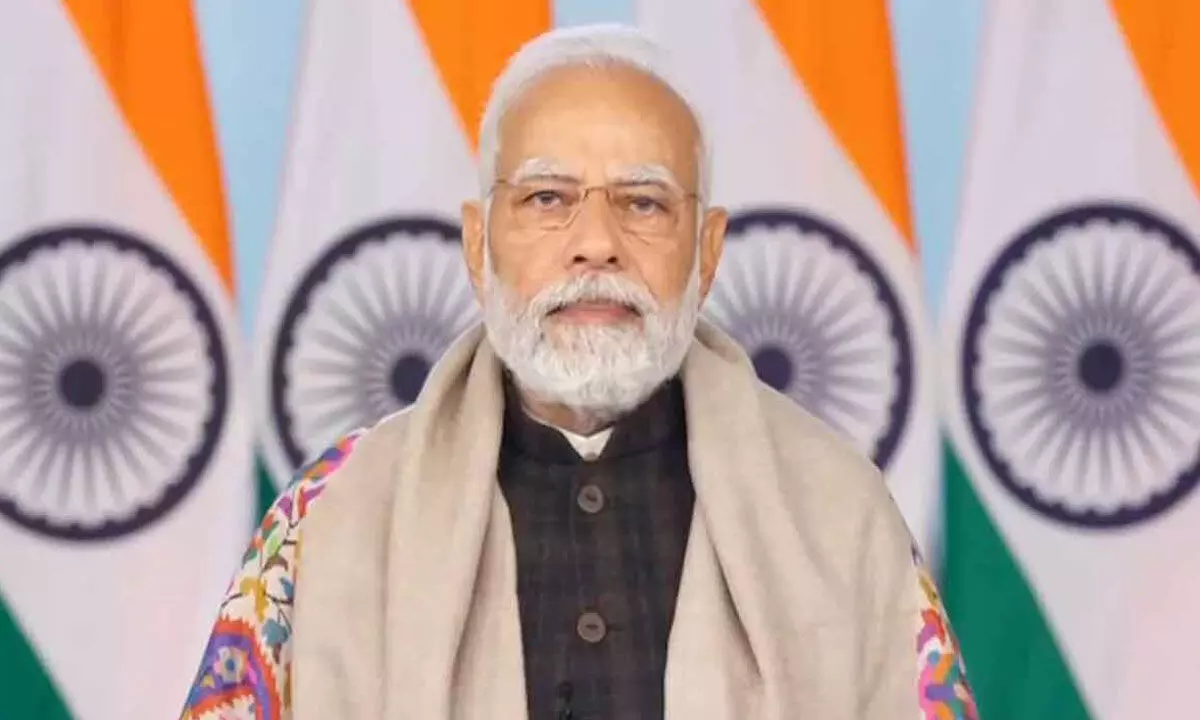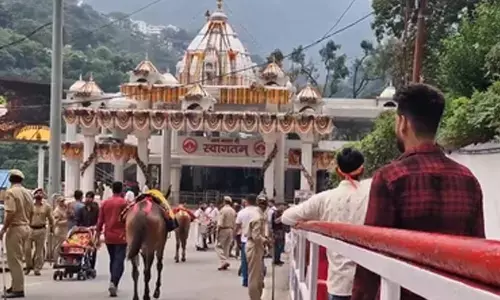Time to revive our connect with nature

Prime Minister Narendra Modi
Prime Minister Narendra Modi’s emphasis on water security could not have come at a better time.
Prime Minister Narendra Modi's emphasis on water security could not have come at a better time. Every country is facing serious issues in this context and shortage of water is leading to water wars, too. Water is one such element over which not just nations, but regions and areas, too, fight over. Instances of even families in the neighbourhood fighting over procuring a pail of water are common, more so in our country.
PM knows how to highlight serious issues confronting us in a simpler way so that everyone understands the importance of the subject. "Water security is a major issue for India and its conservation is a shared responsibility," he said as he raised concerns over water pollution and depletion of groundwater. "Due to such a large population, water security is an important concern for India. It is a shared responsibility of all of us... There shall be a tomorrow only if there is water, and for this we have to make joint efforts from today," he stressed, while launching Jal Jan Abhiyan through video conference in Rajasthan's Sirohi district.
The Jal Jan Abhiyan is a nationwide campaign and is a joint initiative by Brahma Kumaris, an organisation which promotes spirituality, and the Union Jal Shakti Ministry. As part of the campaign, members of Brahma Kumaris will raise awareness about water conservation by conducting public campaigns across the country for eight months. The target of the campaign is to reach at least 100 million people. As the PM stated, "the country has started the Catch the Rain movement, which is now progressing rapidly. Water conservation is also being promoted in thousands of gram panchayats of the country through Atal Bhujal Yojana." Ancient Indian wisdom not only taught us the value of the five elements but also tells us to worship those. Water conservation is our culture and rivers have sustained our towns and cities. Nature is God to us thus.
Sustainable development is all about sustaining nature and ourselves through it. It's heartening to notice that spiritual organisations are not only talking of conservation of nature but also campaigning for the same. Isha Foundation of Sadguru Jaggi Vasudev has begun the "Save Soil" as a global movement to create awareness about soil degradation and bring policies to safeguard soil health by increasing the organic content in soil to a minimum of 3-6% across all nations. The movement aims to educate and raise awareness about soil extinction. Till date, more than 75 countries have pledged to Save Soil from extinction, and 8 Indian states have signed MoUs with Isha Outreach to save soil in their states, including Gujarat, Rajasthan, Uttar Pradesh, Madhya Pradesh, Maharashtra, Telangana, Andhra Pradesh and Karnataka.
Our behaviour and policies with regard to nature and the environment should be guided by a code of ethics, which is to be derived from basic principles and from a pragmatic consideration of the issues at stake. The man-nature relationship has always been ambiguous, nature being seen as both a provider and an enemy. In the Judeo-Christian tradition, man is set apart from nature and called to dominate it, although this attitude has been revised to become one of stewardship. Oriental religions, on the other hand, have a more holistic view and consider humans as an integral part of nature.
Modern philosophers have views ranging from anthropocentrism to biocentrism and egocentrism. Are we going to join hands in conservation or oppose such calls even due to our politics?















